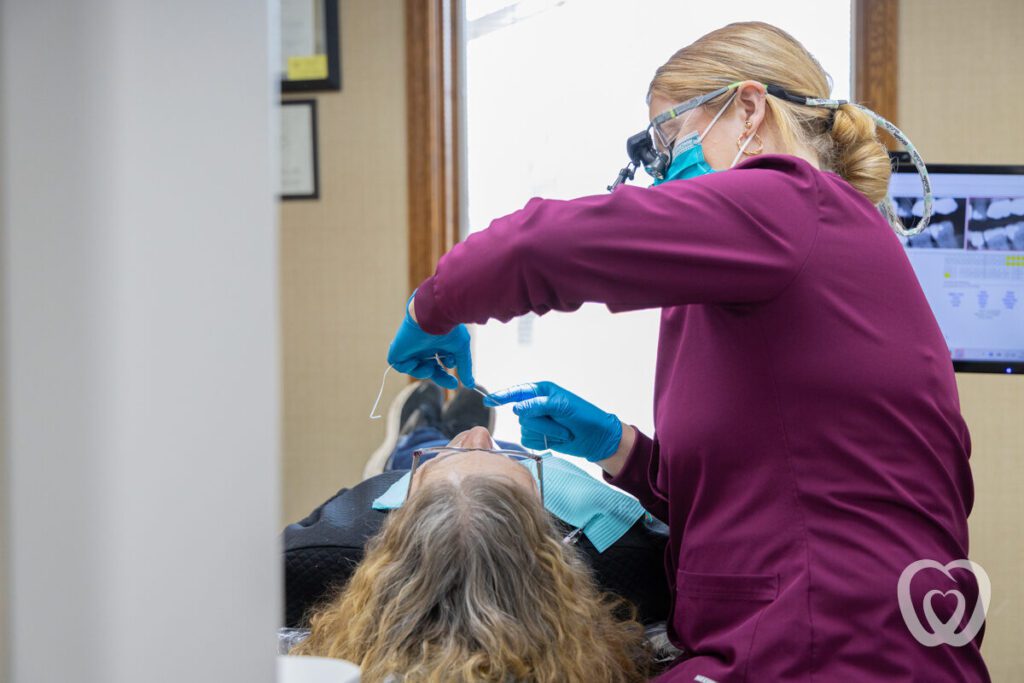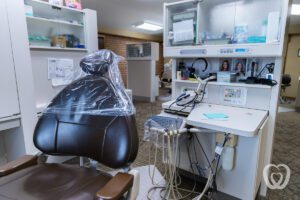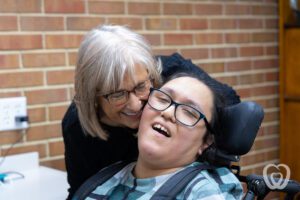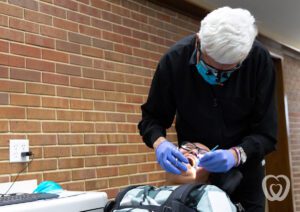
For over a decade, Mel Martin has served as the Director of Development and Training at the Community Care Network of Kansas (Community Care), where she leads efforts to support more than 100 community health center locations across the state. While her title may not reflect it, Mel has become the organization’s key dental advocate — a role she assumed unexpectedly but now embraces with passion and purpose.
A Mission Rooted in Access for All
Community Care’s mission is clear: to strengthen, support, and represent a network of community-based clinics that are committed to delivering equitable access to high-quality, whole-person care. With shrinking access in rural and frontier areas, Community Care is often the only provider available in underserved communities. “We’ve gone from being the provider of choice to, in many cases, the only provider,” Mel noted.
Each member clinic must operate on a sliding fee scale, be guided by a patient-majority board, and accept all patients, regardless of insurance status or health condition. “We are here for everyone. That has always been and always will be our mission,” Mel said.
From Accidental to Essential: Embracing Dental Leadership
Mel didn’t originally set out to work in dental care, but shortly after joining Community Care, she found herself managing dental grants and projects. “I just said, ‘Sure, I’ll take one for the team,’” she recalls. That spirit of service eventually led her to take on all of the organization’s dental initiatives — a responsibility she still carries today.
Her work connects dental providers across Kansas with the training, technical assistance, and support they need to improve operations and expand access to care. She provides everything from operational compliance support to integration strategies for behavioral health and dental services — a model that’s particularly effective for patients with anxiety, trauma histories, or disabilities.
Barriers to Dental Care for Patients with Disabilities
One of the most heart-wrenching stories Mel shared involved an elderly woman with multiple sclerosis whose dental needs required hospitalization. Despite months of searching by Community Care and Oral Health Kansas, no provider could be found who could offer the level of care required. “It was a heartbreaking case — and unfortunately not unique,” she said.
Many patients with disabilities face similar barriers, and some providers may not feel equipped or trained to offer care without full sedation. Mel believes that, with the right training and communication tools, more patients could be cared for safely in dental offices — without the need for general anesthesia or hospital settings. “It takes effort and trust on both sides, but it can be done,” she said.
The Role of the My Dental Care Passport
Mel is a strong advocate for the My Dental Care Passport, a communication tool developed through the Pathways to Oral Health project. Designed to help patients — especially those with disabilities or dental anxiety — share their needs and preferences in advance, the Passport promotes more personalized care.
Community Care introduced the Passport at their 2024 dental conference and has continued to showcase it as a valuable resource for clinics. “We’ve brought it back again and again,” she said. “It’s a way to improve communication, reduce no-shows, and make dental care more accessible for everyone.”
She envisions even greater success with the Passport through joint training and webinars with Oral Health Kansas. “Exposure and efficiency are key,” Mel added. “The more we normalize its use, the more impact we can have.”
Maximizing Workforce and Expanding Capacity
Like many in public health, Mel cited workforce shortages — particularly in dental — as the most pressing challenge for Community Care members. Recruiting and retaining providers in rural Kansas is increasingly difficult, especially as educational debt and legislative changes reduce the availability of new professionals.
Despite these challenges, Community Care continues to innovate. One powerful example is their support of the Kansas Extended Care Permit (ECP) dental hygienist program. Each year, they offer scholarships to train ECP III hygienists, who can then provide outreach care in schools and community settings. When paired with a supportive dentist, the results can be transformative.
“It’s about trust,” she said. “When a hygienist becomes an extension of the dentist, you can serve more people, more effectively. That’s the kind of partnership we want to model across the state.”
A Shared Path Forward
As a key partner in the Pathways to Oral Health initiative, Community Care brings deep experience, a statewide network, and a shared commitment to expanding dental access for people with disabilities and underserved populations. Mel’s leadership — and her willingness to say “yes” to new challenges — reflects the spirit of collaboration that powers the Pathways project.
“We want our clinics to be places where everyone feels welcome and receives high-quality care,” she said. “Whether it’s through the passport, ECP programs, or new training opportunities, we’re all working toward the same goal: improving access and equity in oral health.”




